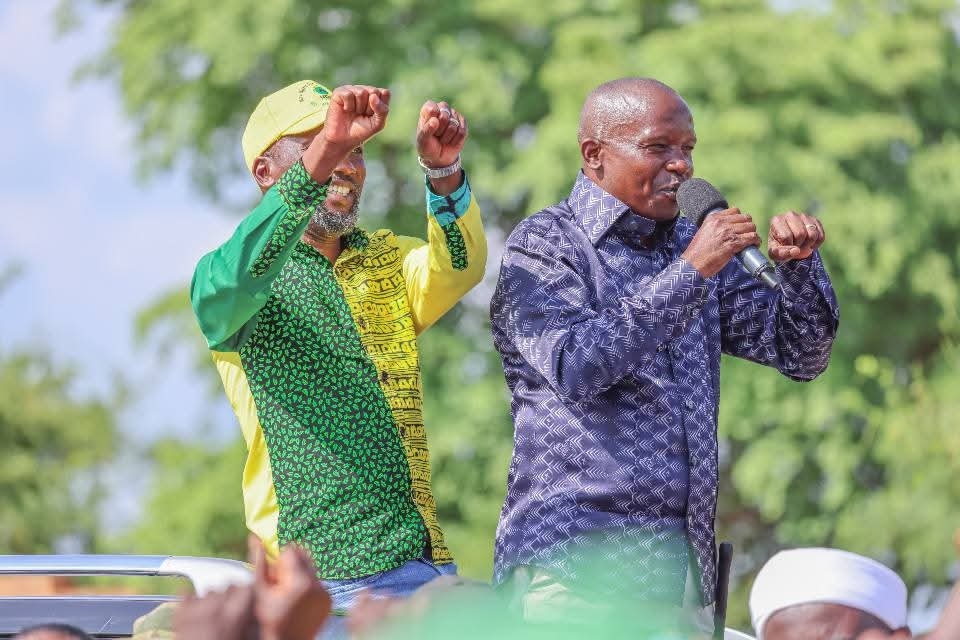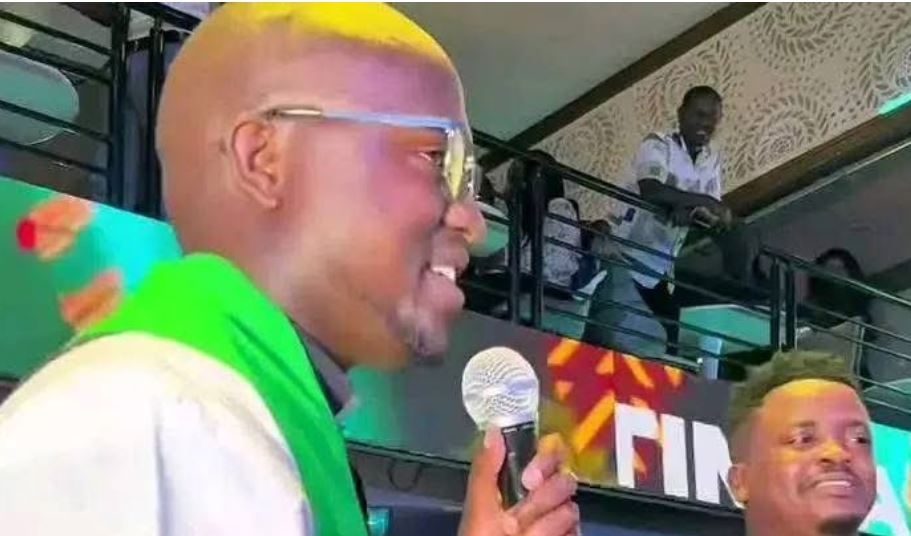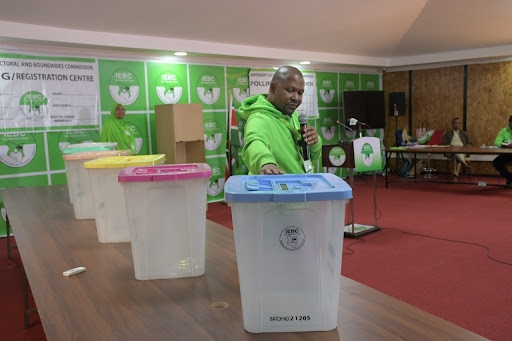
The race for the Mbeere North parliamentary seat has intensified, turning the constituency into a lively political arena as top national and regional figures rally behind their preferred candidates.
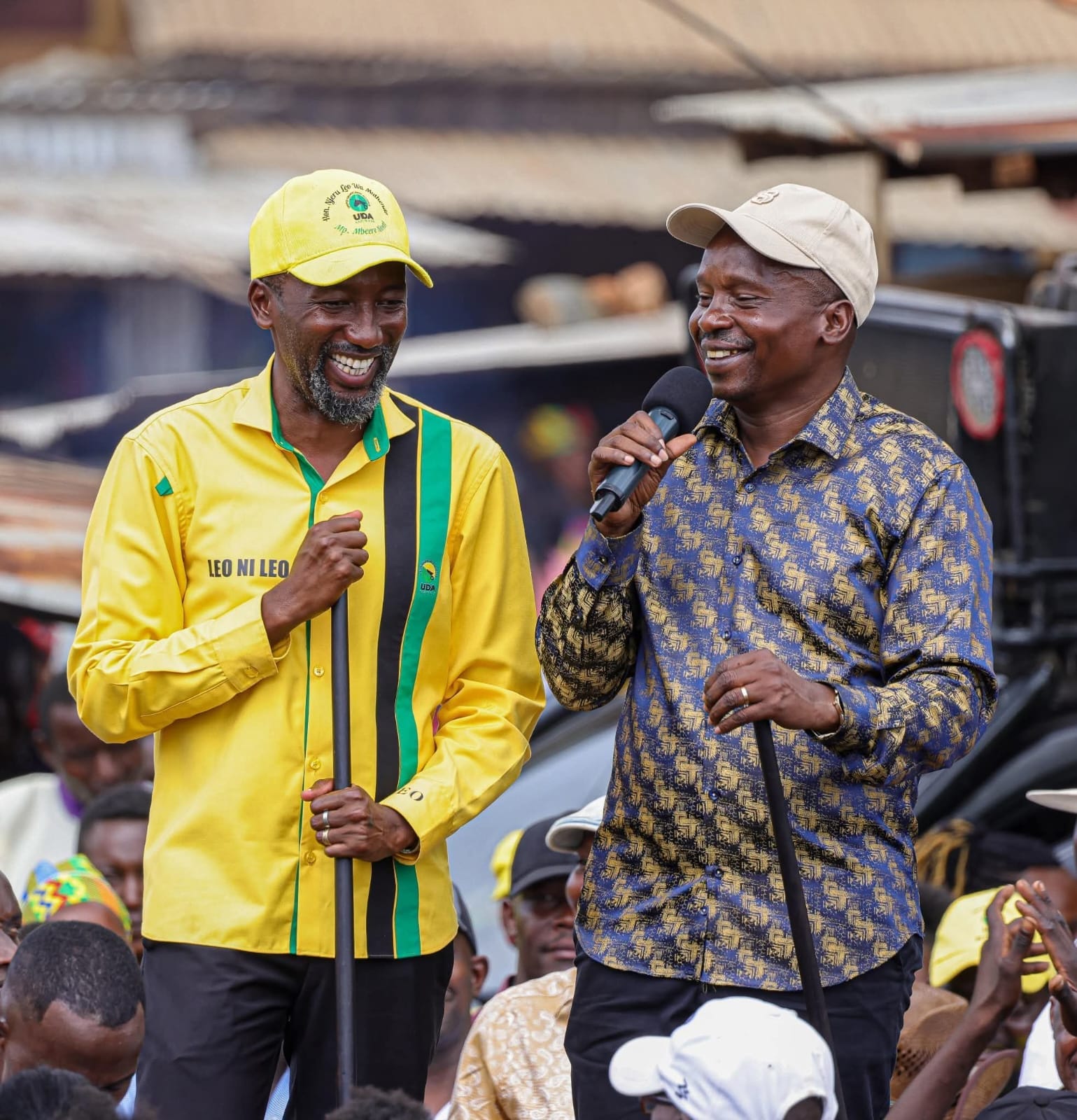
The by-election, prompted by Geoffrey Ruku’s move to the Cabinet, has drawn heightened interest, with campaign activities unfolding through rallies, church visits and roadside stops across the area.
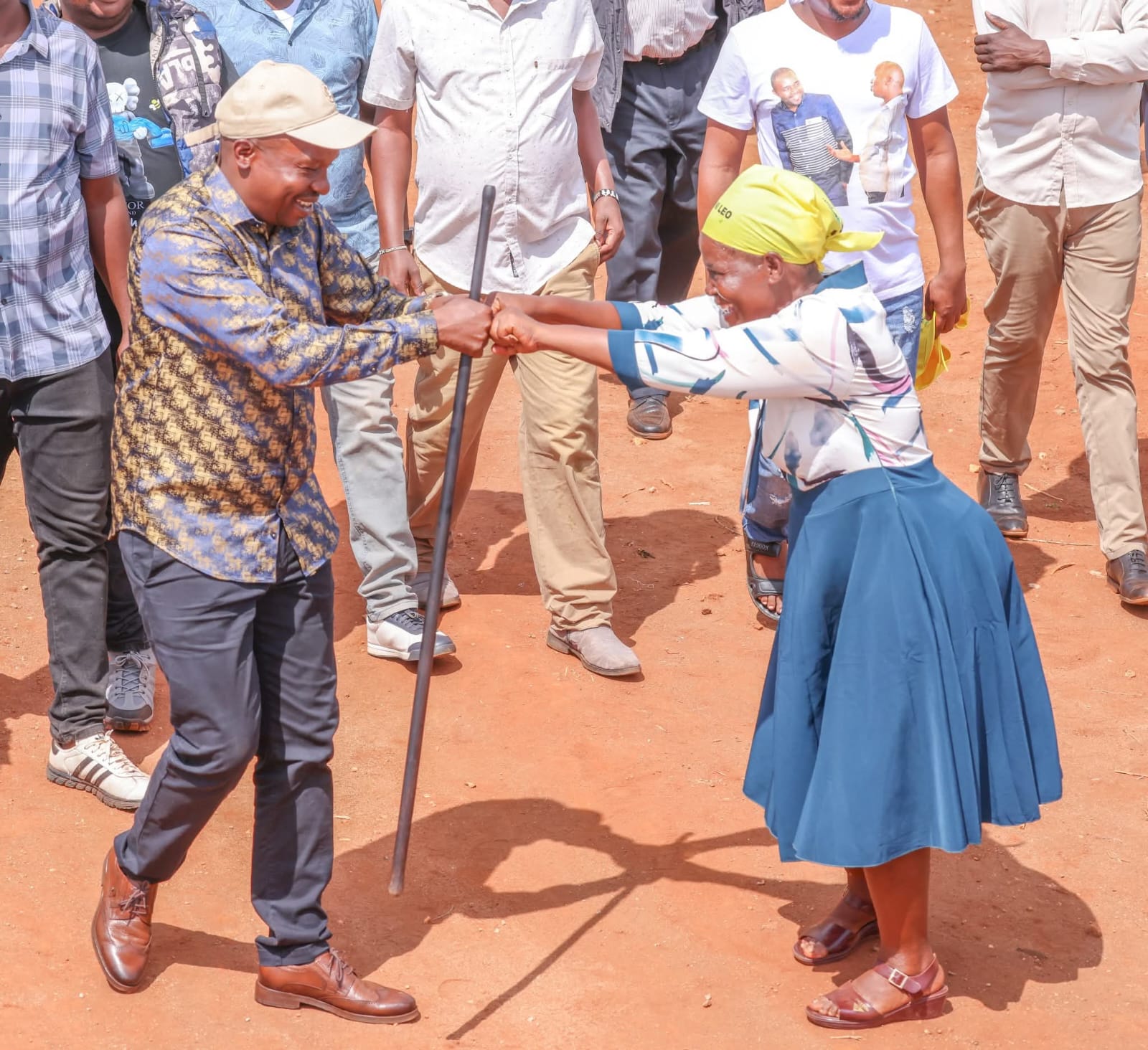
The United Democratic Alliance is backing Leo Muthende Muriuki, a candidate settled on after other aspirants stepped aside. UDA heavyweights including Deputy President Kithure Kindiki and Cabinet Secretary Geoffrey Ruku have poured in support, casting the race as a test of President Ruto’s grip on Mt. Kenya.
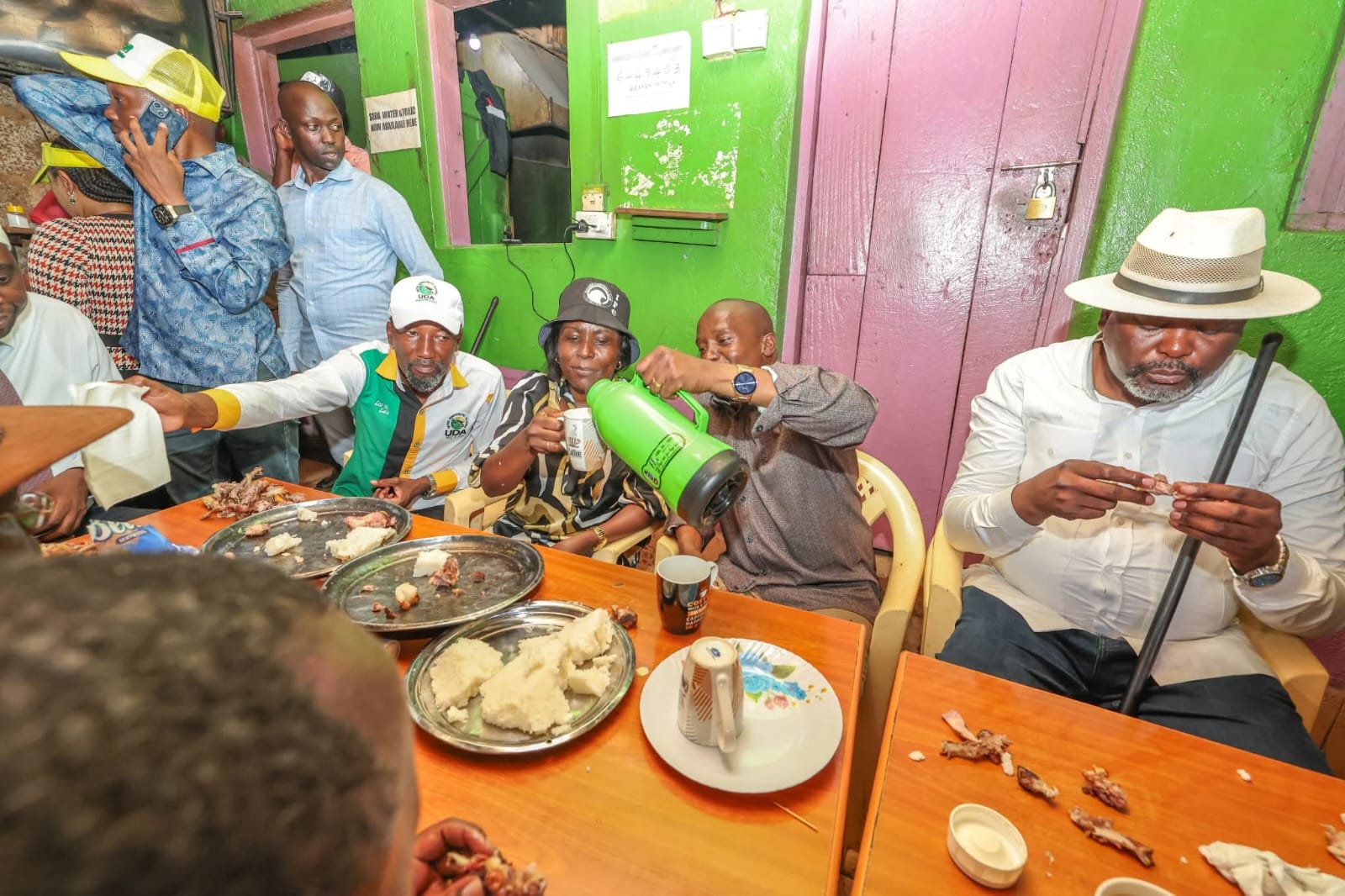
Their presence on the campaign trail has focused on reinforcing UDA’s message of stability and development, with party figures making repeated visits to mobilise support and emphasise the ruling side’s agenda.
Opposing them, Newton “Karish” Kariuki is carrying the Democratic Party flag, unveiled with the support of former National Assembly Speaker Justin Muturi and Embu political figure Lenny Kivuti.
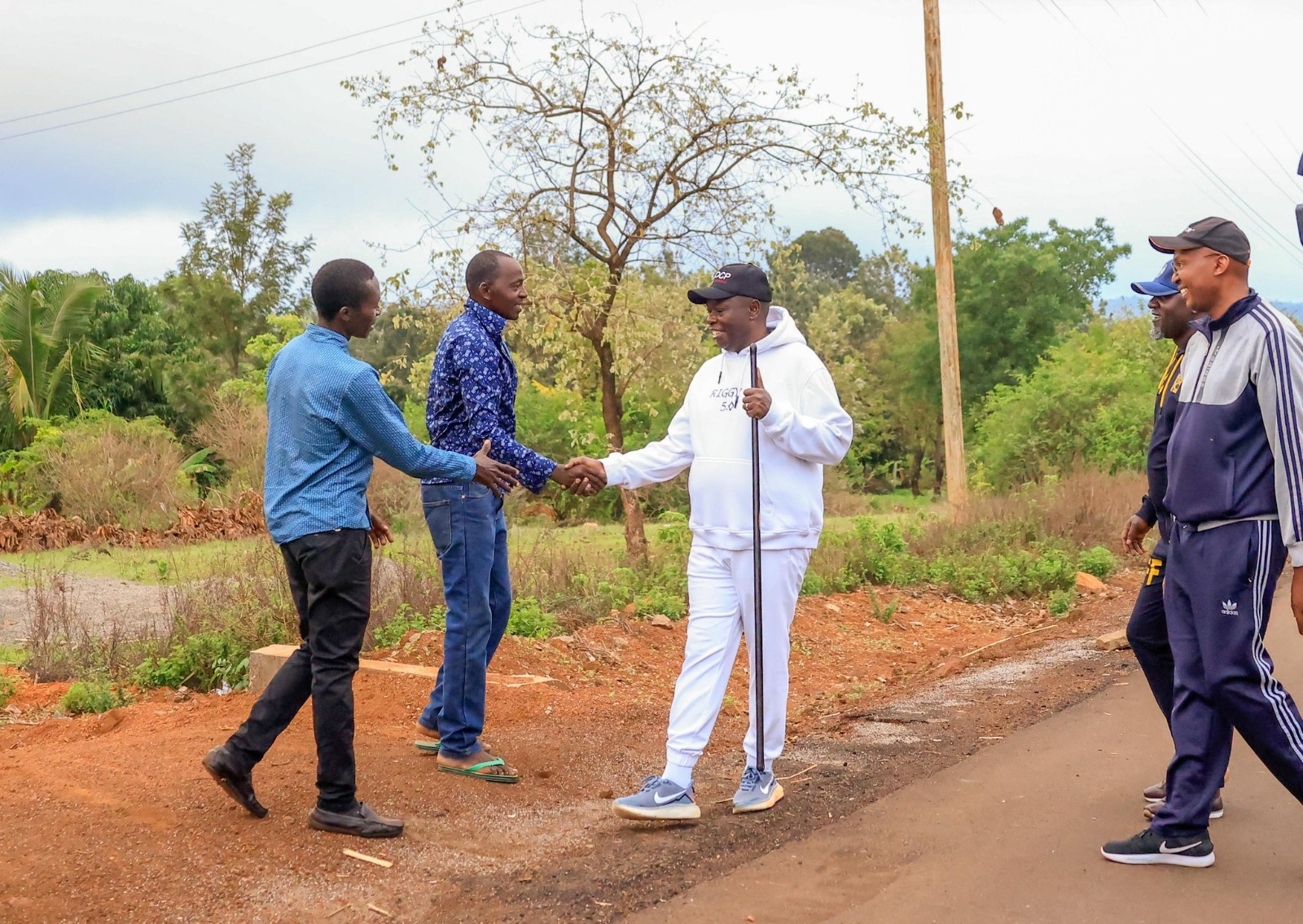
Their involvement has boosted his visibility, with the campaign pitching a message of accountability and fresh leadership.
Former Deputy President Rigathi Gachagua has also been vocal in encouraging voters to back the candidate aligned to the opposition side’s push for a new political direction, urging residents to take pride in their vote.

Their engagements across the constituency have added weight to Kariuki’s campaign and helped frame it as an alternative path for Mbeere North.
With these prominent figures driving the campaigns, Mbeere North has become a hub of political activity.
Each candidate continues to draw attention through rallies and voter engagements, leaving the final outcome squarely in the hands of the electorate as the constituency prepares for a defining vote.
Malava gears up for tough by-election fight
The Malava by-election has grown into a high-energy political contest, drawing national and local attention as parties and leaders step up their campaigns to fill the seat left vacant following the death of MP Malulu Injendi.
What began as a routine electoral process has quickly turned into a major political moment, with rallies, roadshows and community engagements unfolding across the constituency.
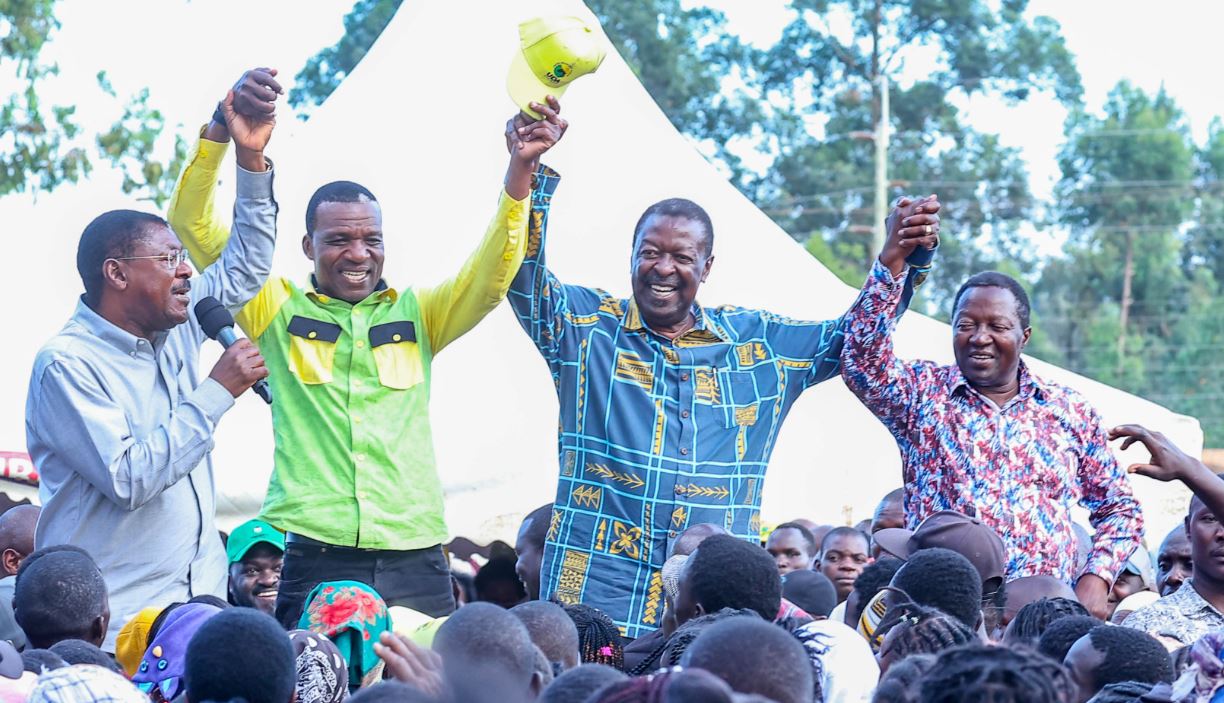
The United Democratic Alliance is fronting David Ndakwa, who has received strong support from Prime Cabinet Secretary Musalia Mudavadi.
Mudavadi has made several visits to Malava, urging residents to rally behind Ndakwa and emphasising the message of continuity and development.
UDA leaders have framed their campaign around stability and partnership with the national leadership, using public gatherings and local meetings to strengthen their presence on the ground.
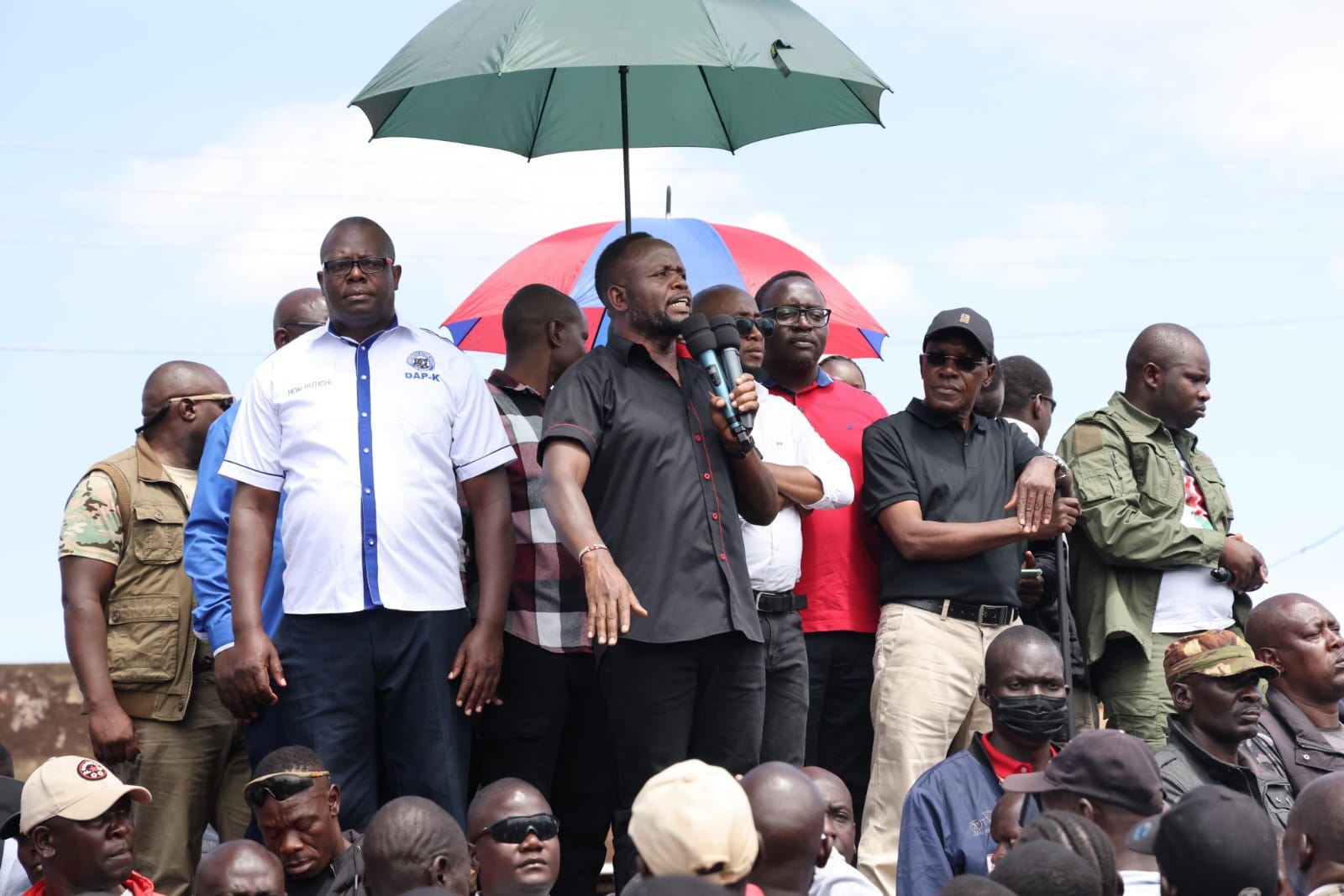
However, the ruling side’s involvement has sparked debate among some leaders in the region. Kakamega Senator Boni Khalwale has publicly cautioned against what he views as external influence in the constituency’s politics, calling for Malava’s voters to take charge of their choice and prioritise local interests.
His stance has added a fresh dynamic to the campaigns, highlighting questions of identity and ownership in the electoral process.
The race has also attracted several other parties, making the contest highly competitive.
The Democracy for Citizens Party is represented by Edgar Busiega, while DAP-K has fielded Seth Panyako.

Kenya Moja’s Wilberforce Tuvei and DNA’s Joab Manyasi are also in the running, each holding independent meetings and appealing to voters through grassroots mobilization. Their presence has widened the field and ensured that no single narrative dominates the constituency.
With multiple parties actively campaigning and key political figures taking visible roles, Malava has become a hive of activity.
Colourful rallies, community stopovers and house-to-house engagements have defined the buildup, giving voters a chance to interact directly with candidates and their supporters.
As the campaigns
intensify, the final decision rests with the electorate, making the by-election
a significant moment for Malava’s political future.
Waiguru’s condolence visit to Raila’s widow
In the wake of Raila Odinga’s death, Kenya’s political heavyweights have converged on his Karen home to pay tribute and console Ida Odinga, his widow.
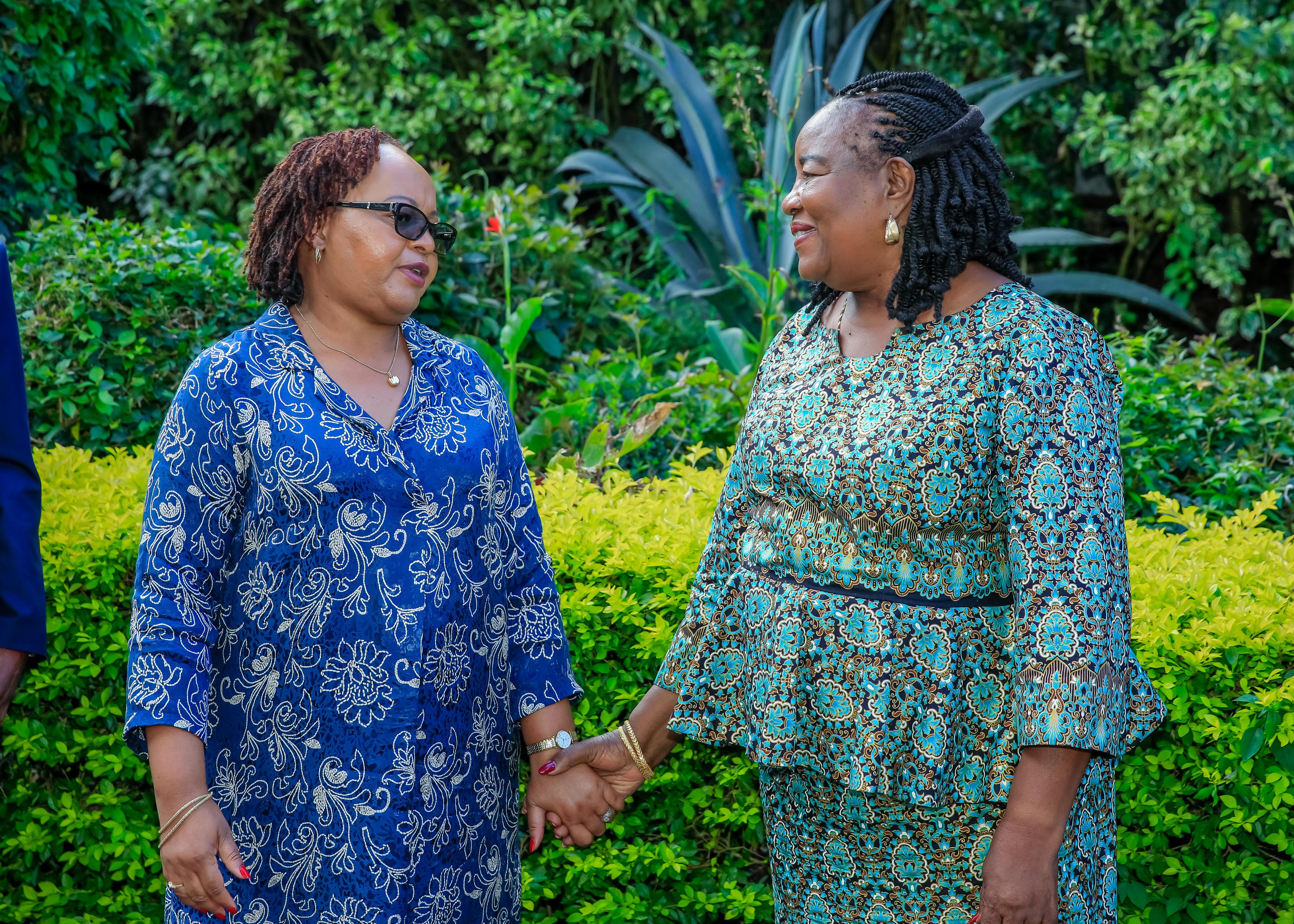
Among the first was Wiper Party leader Kalonzo Musyoka, who on October 17 visited Mama Ida.
He called Raila “a tower of strength” and praised her composure and courage during the family’s grief.
Former President Uhuru Kenyatta and his wife Margaret followed soon after, arriving at the Karen residence for a solemn condolence visit.
Their appearance underscored the cross-party reach of Raila’s legacy, as they joined other dignitaries in offering support to the Odinga family.

Kirinyaga Governor Anne Waiguru on November 13 visited the Karen home to meet Mama Ida Odinga and condole with the family.
She described the moment as deeply emotional, calling Raila and Ida “extraordinary mentors and cherished friends” over the years.
Waiguru was joined by her county executive team, members of the county assembly, and the Daughters of Kenya Mountain Chapter, of which she is patron.
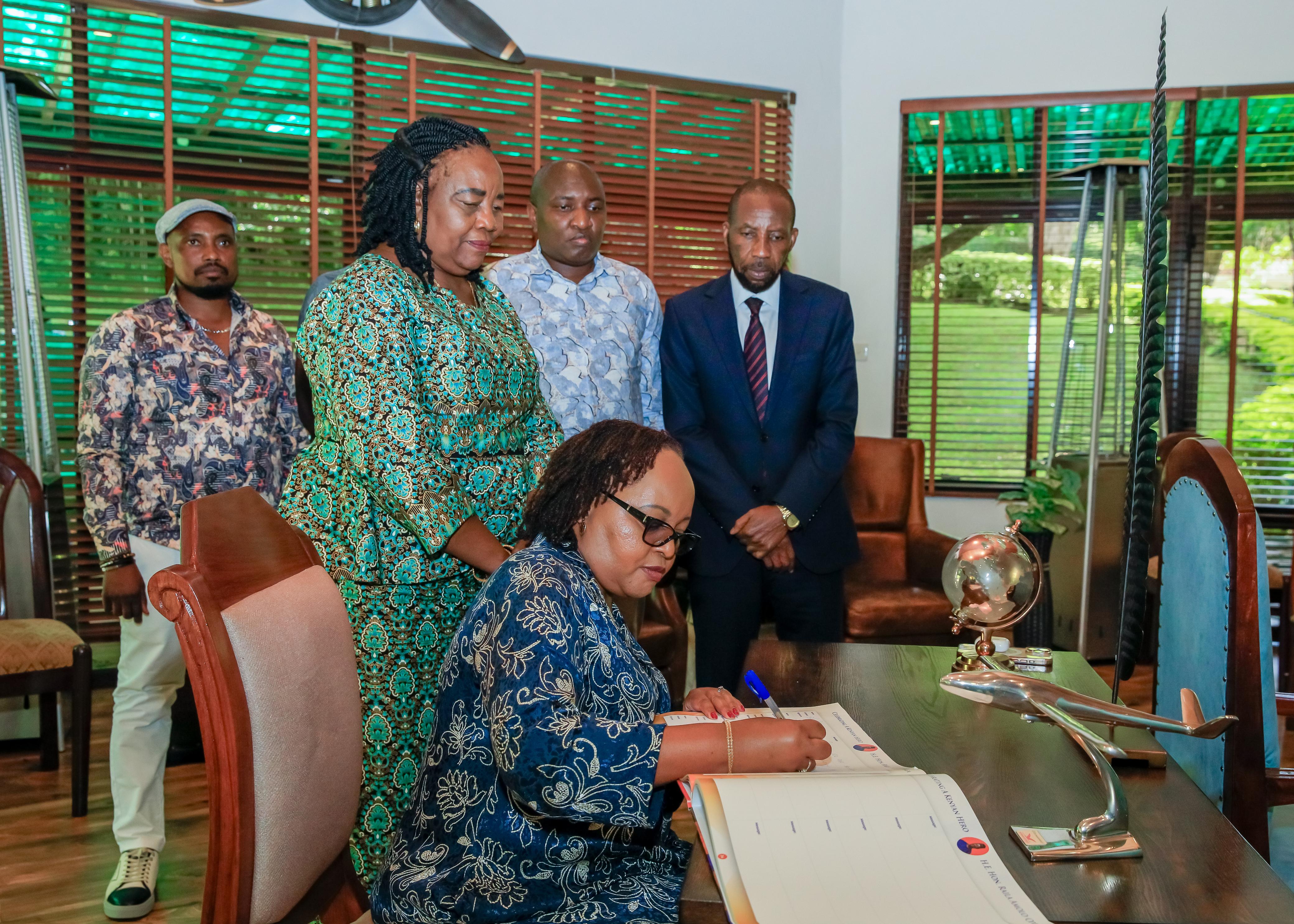
She praised Raila’s wisdom and courage, saying his love for the nation will forever remain in people’s hearts.
As leaders stream in and pay their respects, the Karen residence has become a powerful symbol: a place of mourning, solidarity, and national reflection.
The outpouring of
support highlights not just the grief of a family, but the deep imprint Raila
Odinga left across Kenya’s political landscape.
Ruto’s State of the Nation Address 2025
President William Ruto used his third State of the Nation Address on November 20, 2025, to lay out an ambitious roadmap for Kenya’s development while highlighting recent economic gains.
Speaking before a joint sitting of Parliament, Ruto described the past three years as turbulent yet foundational, noting that while progress has been made, the nation remains “below its true weight.”

He urged Kenyans to abandon mediocrity and embrace a “new mindset” centered on ambition, courage, and innovation.
Ruto highlighted several economic milestones, including a drop in inflation, stabilization of the Kenyan shilling, and improved revenue collection.
He credited fiscal discipline and the reduction of wasteful subsidies for setting the economy back on a recovery path.
The President stressed that these gains are only the beginning and that sustained effort is needed to secure long-term growth.
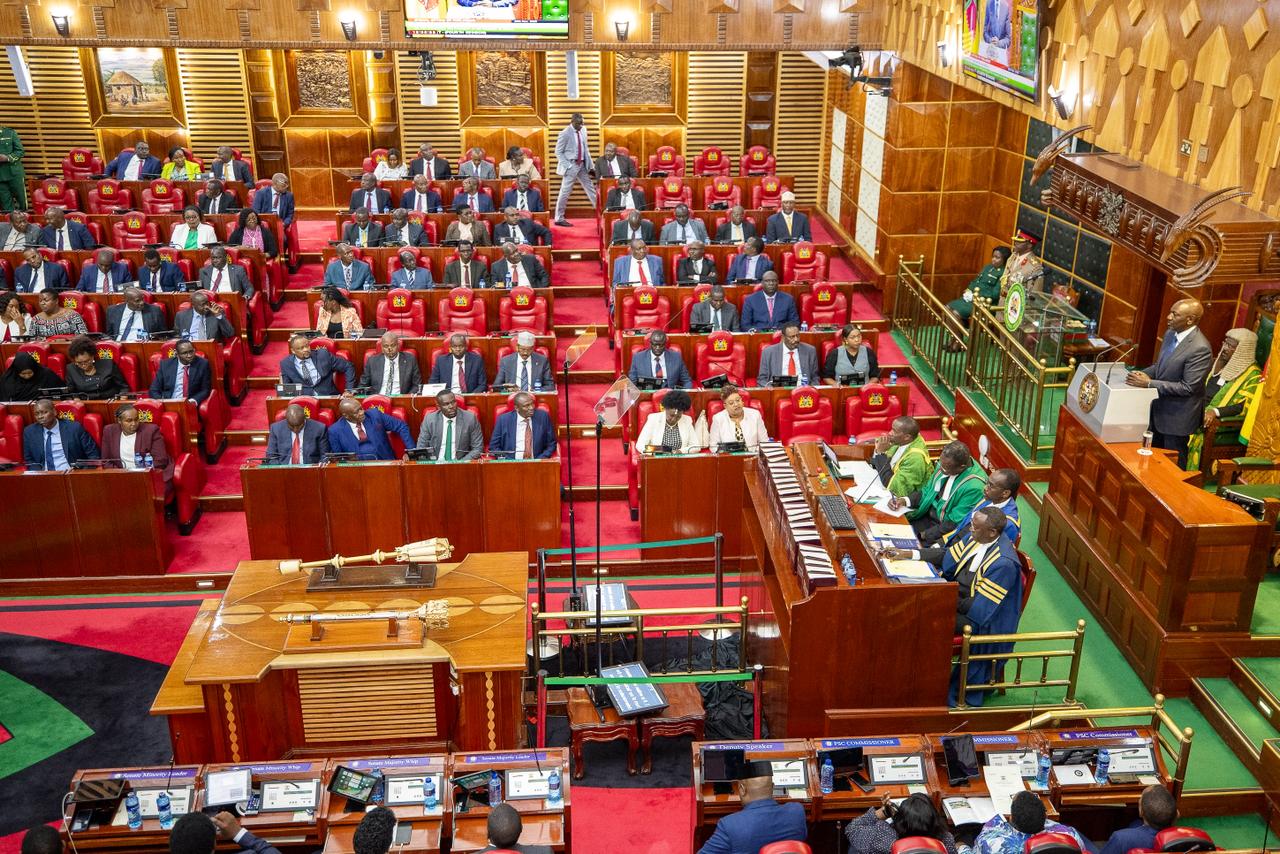
The address also outlined a comprehensive development agenda.
Additionally, he reaffirmed his commitment to universal health coverage, food security, education reform, and digital transformation, emphasizing that these initiatives will improve the quality of life for all Kenyans.
Ruto celebrated Kenya’s improved standing in financial markets, citing the strong performance of the Nairobi Securities Exchange and increased foreign direct investment as signs of growing investor confidence.
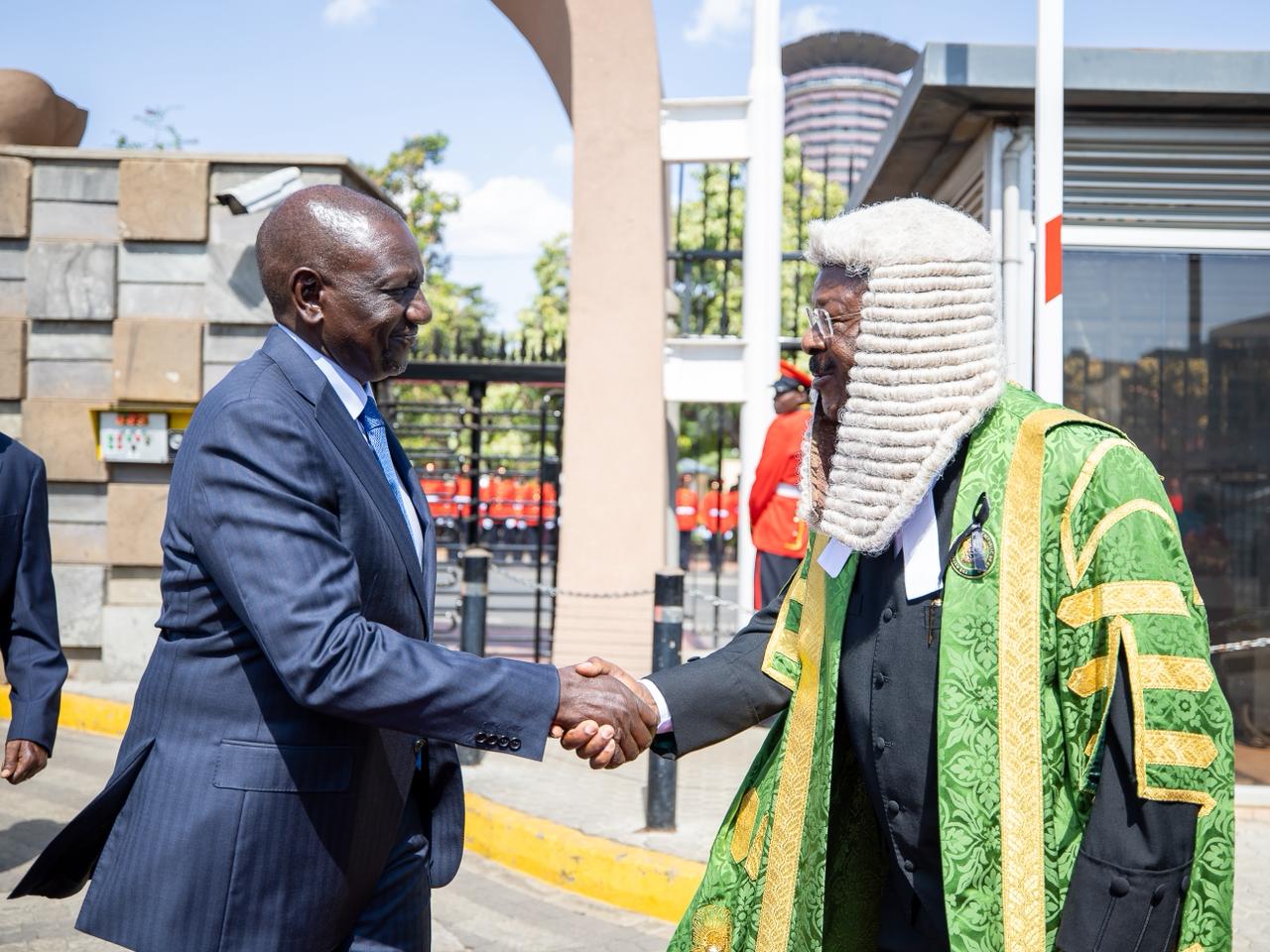
He acknowledged Parliament’s role in supporting his reform agenda and stressed that collaboration between the Executive and lawmakers remains critical for achieving national objectives.
Ruto called on Kenyans
to seize the opportunities ahead, reaffirming his vision of a prosperous,
competitive, and self-reliant nation.


